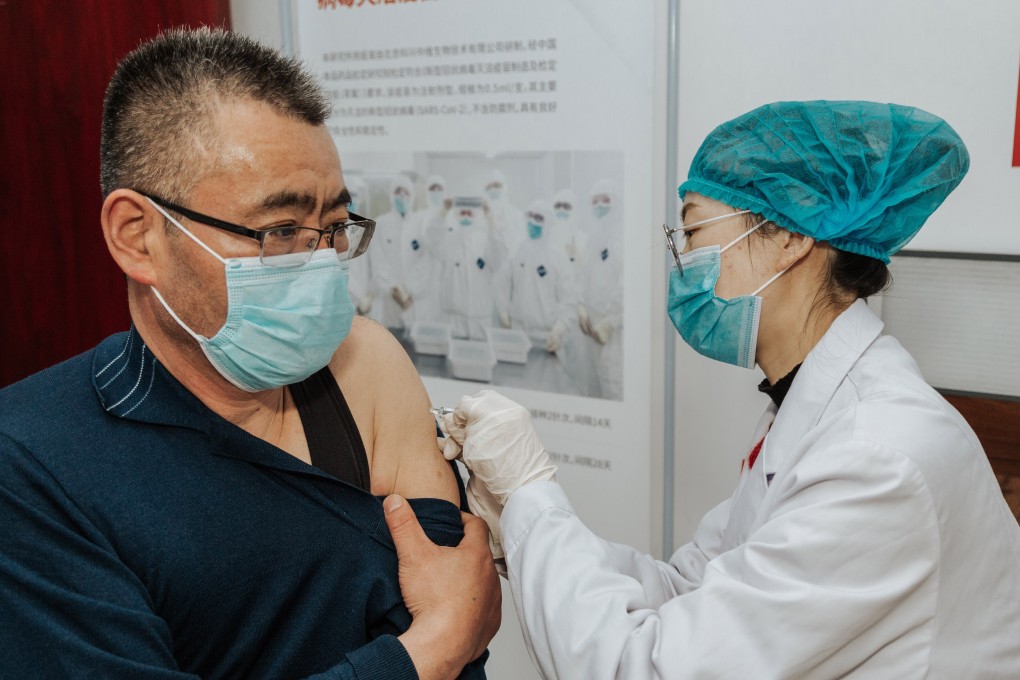China tilts to Covid-19 vaccine diplomacy as domestic jab programme lags
- Figures show more Chinese-made vaccines have gone overseas than into people’s arms as Lunar New Year target missed
- The country’s inoculation rate lags behind the US and Britain, with vaccine hesitancy believed to be a factor

Figures compiled by the South China Morning Post show China shipped at least 46 million ready-made vaccines or their active ingredients around the world, as of Monday – with hundreds of millions more doses to come.
In contrast, the country’s health authority said 40.52 million vaccine doses had been administered in China, as of February 9. The number was second only to the US, where more than 50 million jabs have been injected.
China’s large population base means only about three vaccine doses per 100 people have been administered, compared to more than 15 doses per 100 in the US, according to Bloomberg’s vaccine tracker. Israel tops the charts, with almost 70 doses per 100 people, while Britain has delivered almost 22 doses per 100 people.
Huang Yanzhong, a global health expert at US think tank the Council on Foreign Relations, said China’s success in largely controlling the Covid-19 outbreak within its borders had reduced its need for vaccinations until recently.